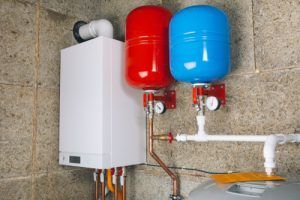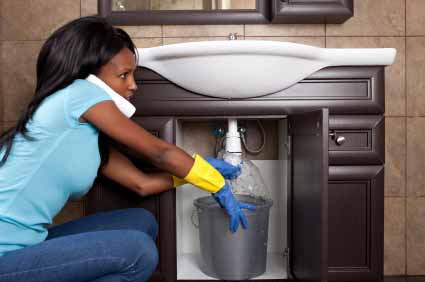How to Cope with the Major Hot Water Heater Urgencies
How to Cope with the Major Hot Water Heater Urgencies
Blog Article
Listed here below you can get a bunch of good quality answers pertaining to Common Hot Water Heater Problems.

A water heater is among the most essential standard home appliances that can be found in a house. With hot water heater, you don't need to undergo the stress and anxiety of heating water by hand whenever there is a need to wash, wash, or the meals. There is always a possibility that your water heater would act up as with many mechanical devices.
It is important to keep in mind any kind of little malfunction as well as tackle it promptly prior to things get out of hand. Most times, your hot water heater begins to malfunction when there is a build-up of sediments as a result of continuous use. As a precaution, routine flushing of your water heater is recommended to stop sediment build-up and also avoid useful failing.
Common water heater emergency situations and how to handle them
Insufficient hot water
Taking care of an insufficient supply of hot water can be aggravating. It might be that the hot water heater can't support the warm water need for your home. To deal with this trouble, you can attempt to change your heater's temperature dial and also await a couple of minutes. You can ask for the aid of a specialist plumber if the problem persists. You can upgrade your water heating system to one with a larger capability.
Changing water temperature.
Your water heating unit can begin creating water of different temperature levels typically ice chilly or scalding warm. There may be a need to change either the home heating or the thermostat system of your water heater.
Leaky water heater storage tank.
A leaky container could be an indication of corrosion. It might trigger damage to the floor, wall and also electrical devices around it. You could even be at danger of having your home swamped. In this circumstance, you ought to switch off your hot water heater, enable it to cool, as well as meticulously look for the source of the problem. Sometimes, all you require to do is to tighten a couple of screws or pipe links in cases of minor leaks. If this does not function and the leakage persists, you might need to employ the solutions of a specialist for a proper substitute.
Discolored or smelly water
You need to know if the problem is from the tank or the water source when this takes place. You are particular that it is your water heater that is faulty if there is no amusing odor when you run cold water. The stinky water can be brought on by rust or the buildup of germs or debris in the hot water heater tank. As soon as you notice this, you can try flushing out your tank or changing the anode if the problem continues. The function of the anode is to clear out bacteria from your storage tank. Given that the anode rod replacement calls for a thorough understanding of your water heating unit, you will certainly need the help of an expert.
Verdict
Some property owners overlook little caution as well as minor faults in their hot water heater device. This only leads to further damages and a feasible total failure of your device. You need to take care of your hot water heater mistakes as quickly as they come near prevent even more costs and unneeded emergency problems.
With water heaters, you don't need to go through the stress and anxiety of home heating water manually every time there is a demand to take a bath, do the laundry, or the meals. It may be that the water heating unit can't sustain the hot water need for your apartment. Your water heater might start generating water of various temperatures generally ice chilly or scalding hot. If there is no amusing scent when you run cold water, then you are certain that it is your water heater that is damaged. The smelly water can be triggered by corrosion or the accumulation of bacteria or debris in the water heater storage tank.
What’s Wrong With My Water Heater?
Not Enough Hot Water
You probably encounter this problem in the shower or while washing dishes. As you run your water, you’ll notice it starting to cool down. Turning up the hot faucet may not work, or it may only heat the water for a short period. Your hot water probably comes back and works normally one or two hours after you use it up.
If you’ve never had enough hot water, your heater may be too small for your home. If you haven’t had a problem until recently, there’s probably something’s wrong with your heater’s thermostat. Try adjusting it to see if you can feel a difference. Even if the thermostat’s working, the heating element itself could have burnt out. It’s also possible that a clog has restricted water flow into or out of the heater. Luckily, none of these problems are hard to fix, as long as you call them in early.
Water is Too Hot
Unregulated water heaters can make water dangerously hot. You probably have this problem if you’ve been scalded by your hot water. It’s also a likely culprit if you have trouble getting your faucets to produce a comfortable temperature. This problem is easy to fix, but it can also be a serious health hazard if you don’t address it. If you think your water is too hot, don’t doubt yourself; look into it!
Start by finding your heater’s thermostat and mark its position with a pen. Turn the thermostat to a cooler setting. Wait a couple hours to see if the problem is solved. If it isn’t, listen for boiling in the tank and look for water that comes out of the faucet steaming. In those cases, your temperature-pressure relief valve may be malfunctioning. This is a serious problem that can be dangerous, so you should have it looked at right away.
Discolored or Smelly Water
If all your water looks rusty or smells weird, there’s probably a problem with your pipes. If only your hot water looks weird, however, your water heater is probably at fault. Hot water discoloration comes in several varieties. It could look orange or brown-ish, taste rusty, or feel grainy. It could also look yellow or green-ish and taste gross or feel slimy. Either way, it’s a sign that there’s something wrong with your water heater’s tank.
Usually, hot water discoloration means sediment has built up in your tank. Sediment is made up of hardened minerals that accumulate on the inside of the water heater’s walls. When enough sediment builds up, it causes all kinds of problems–including your discolored water. Try flushing your water heater tank to clean out built up sediment. If the water still tastes rusty, your tank’s rust-preventing anode rod may have worn out. A pro can replace an anode rod easily, but without one, your tank could rust beyond repair relatively quickly.
Leaking
Water heaters can leak from several different places, and each leak means something different. If the leak is coming from a pipe above the heater, it’s possible the tank itself hasn’t been compromised. The cold inlet, hot outlet, and T&P pipes could all leak from above. Try tightening the problematic valve. If that doesn’t work, then the valve or pipe will have to be replaced.
If the leak is coming from the bottom of the tank, it’s important to determine exactly where it is. The leak could be coming out of the drain valve or your T&P valve below the tank. You can replace those valves and preserve the tank itself. If you notice the water tank itself leaking, however, that probably means it’s corroded beyond the point-of-no-return. Leaking water heaters are a big deal, so you should get yours replaced ASAP.
https://www.punctualplumberdallas.com/blog/whats-wrong-water-heater/

Do you like more info about The Importance of Water Heater Maintenance? Give feedback directly below. We'd be glad to find out your opinion about this entry. We hope to see you back again in the near future. Sharing is good. You never know, you will be doing someone a favor. Thanks so much for going through it.
24/7 support? Call. Report this page